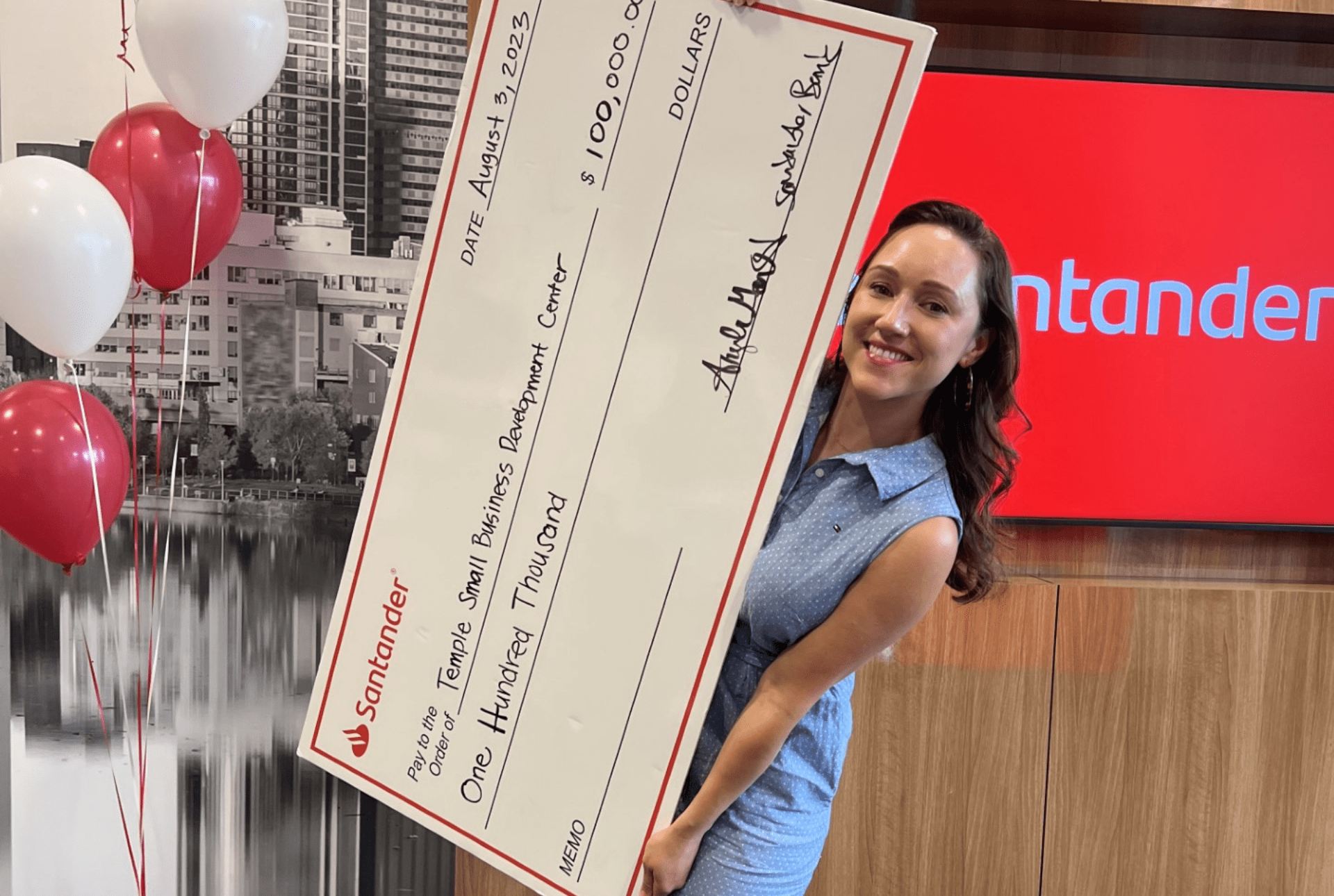Director of programs Jamie Shanker-Passero recently celebrated her five-year anniversary at the Temple University Small Business Development Center (SBDC). A champion for small businesses, Shanker-Passero has spent over a decade in economic development and providing resources to help underserved entrepreneurs in the Greater Philadelphia area thrive. In her five years at SBDC, she’s spearheaded program development and brought in hundreds of thousands of dollars in funding. We recently sat down with her to hear more about her time at the SBDC and what small business means to her.
How did you first hear about the Temple SBDC, and what motivated you to join?
I was running a Women’s Business Center in New Jersey, but had been living in Philadelphia for many years, starting from when I attended Temple University’s Beasley School of Law. When I was offered the opportunity to build resources for small businesses in my backyard, I happily accepted. I was also attracted to the added resources that Temple University has to offer, including access to talented students who can tackle projects for small business owners.
What have you liked most about working at the SBDC?
Small businesses are what make our neighborhoods fun places to live and visit, and I love that the programs I work on can help those businesses grow and thrive. I’m a constant advocate for SBDC. Whether I’m at a farmers market or holiday shopping, I like chatting with businesses owners and talking about how our office can help them. My toddler has even been known to make appearances at evening business association meetings.
It’s also lovely working with such a dedicated group of colleagues. We’re able to solve problems together, cheer each other on and support each other through challenges. We’ve also watched our families grow, even during the pandemic. We all love a cute dog or kid picture shared in the group chat.
On top of that, I feel that we’ve done a great job raising awareness of our services through new relationships with organizations around the region. I like that we’ve become such a trusted partner for events and programs, plus we have a solid network to call on to trouble shoot issues with our clients. If we don’t have the solution, I will find a resource that does.
You’ve achieved a lot in your time here and have been essential in expanding the SBDC’s program offerings. What are some of your favorite programs you’ve worked on?
We’ve built a strong roster of diverse programs over the past few years. I enjoyed running our community business incubator which had to close during the pandemic. Speaking of the pandemic, Start-Up Essentials was a big success for us. I led a collaborative effort, bringing in our consulting and marketing departments to tackle the influx of new entrepreneurs making pivots during COVID. Together, we designed regularly scheduled educational programs addressing the crucial foundational elements to starting a business.
I’ve also had the opportunity to design and manage several specialized programs. Our Save Your Biz program provides high-touch consulting and professional services for struggling small businesses in different corridors. This has allowed me to get extra creative, including connecting to Square which resulted in point-of-sale equipment donations once we noticed how many storefronts lacked that necessary tool.
We’ve dabbled in supporting emerging energy technology; our SBA award through the Growth Accelerator Fund Competition allowed us to offer one-on-one support and specialized training to diverse small businesses focused on clean energy. And I worked with Philadelphia Gas Works to create the Energy Innovation Lab, with the mission of supporting early-stage businesses working on energy industry innovations through mentorship and funding.
I own my own food tour company and am a former food writer, so being able to provide resources for underserved food entrepreneurs has been especially rewarding for me. I worked with Santander Bank on recruitment for their Cultivate Small Business Program, which helps early-stage entrepreneurs build and sustain businesses in the food industry, with a focus on woman-, immigrant- and BIPOC-owned businesses. Recently, I developed the Commissary Scholar Program in partnership with Culinary Collective, which offers free coworking kitchen space and business consulting to woman- and minority-owned local culinary businesses. And during the pandemic, I managed our Hospitality Center of Excellence, offering specialized education for food, events, and tourism businesses.
What can we expect to see from you moving forward?
We are learning what additional support would add value for entrepreneurs, on top of our consulting and training. I am interested in bringing in supplemental wrap-around services and that’s where I get to use my creativity. For example, we’ll be rolling out a tax and accounting clinic in North Philadelphia, which is a project I’ve been working on for over a year. This pilot will help entrepreneurs with tax repair issues and better bookkeeping practices. We’ve gotten tremendous support for this concept.

